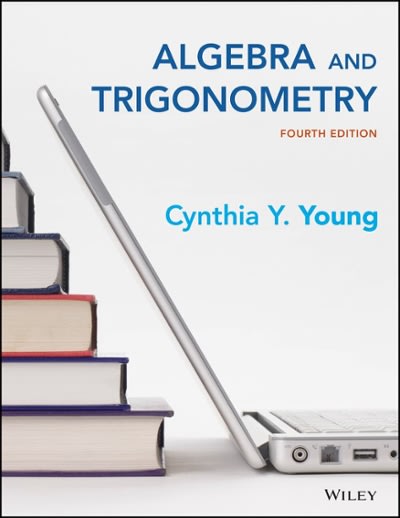Question
An original copy is shipped off a composing firm comprising of typists A, B, and C. On the off chance that it is composed by
An original copy is shipped off a composing firm comprising of typists A, B, and C. On the off chance that it is composed by A, the
number of mistakes made is a Poisson irregular variable with mean 2.6; whenever composed by B, at that point the
number of blunders is a Poisson arbitrary variable with mean 3; and iftyped by C, at that point it is a
Poisson arbitrary variable with mean 3.4. Allow X to indicate the number ot blunders in the composed
composition. Expect that every typist is similarly liable to accomplish the work.
(a) Find E[XJ.
(b) Find Var(X).
38))
A deck of n cards, numbered 1 through n, is arbitrarily rearranged so all n! conceivable
changes are similarly likely. The cards are then turned throughout each in turn until card number 1
shows up. These improved cards comprise the primary cycle. We currently decide (by taking a gander at the
improved cards) the most minimal numbered card that has not yet showed up, and we keep on turning
the cards face up until that card shows up. This new arrangement of cards addresses the subsequent cycle. We
again decide the most minimal numbered of the leftover cards and turn the cards until it shows up,
etc until all cards have been turned over. Allow mn to signify the mean number of cycles.
(a) Derive a recursive equation for mn as far as k 1,
(b) Starting with 1770 = O, utilize the recursion to discover m2, and 1774.
(c) Conjecture an overall equation for mn
(d) Prove your equation by acceptance on n. That is, show it is legitimate for n = 1, at that point expect it is valid
peak any of the qualities 1: .
n 1 and show that this infers it is valid for n.
(e) Let X; equivalent 1 it one ofthe cycles closes with card I, and let it equivalent O in any case, 1, -
Express the number ot cycles in wording ot these Xi.
(f) utilize the portrayal to some extent (e) to decide mn.
(g) Are the arbitrary factors Xl,
autonomous? Clarify.
(h) Find the difference ot the quantity of cycles.
39)))
A detainee is caught in a cell containing three entryways. The primary entryway prompts a passage that profits
him to his cell following two days of movement. The second prompts a passage that profits him to his cell
following three days ot travel. The third entryway drives promptly to opportunity.
(a) Assuming that the detainee will consistently choose entryways 1, 2, and 3 with probabilities 0.5, 0.3, 0.2,
what is the generally anticipated number of days until he arrives at opportunity?
(b) Assuming that the detainee is in every case similarly liable to pick among those entryways that he has
not utilized, vvhat is the normal number of days until he arrives at opportunity? (In this variant, peak
example, in the event that the detainee at first attempts entryway 1, vvhen ne gets back to the cell, he will presently choose
just from entryways 2 and 3.)
(c) For container (a) and (5) discover the difference ofthe number ot days until the detainee comes to
opportunity.
40))
n are free typical irregular factors, with Xi having mean P'/and change
1: at that point the irregular variable is supposed to be a noncentra/chi-squared arbitrary variable.
(a) it Xis an ordinary arbitrary variable having mean u and difference 1 show, for It] < 1/2, that the
second producing capacity ofX2 is
(b) Derive the second producing capacity ot the noncentral chi-squared irregular variable
X2!, and show that its appropriation relies upon the arrangement of means 41, .
as it were
through the amount of their squares. Asa result, we say that is a noncentral chi-
squared irregular variable witn boundaries n and =
(c) It every one of the 0, at that point X2 is known as a chi-squared irregular variable with n levels of
opportunity. Decide, by separating Its second producing capacity, its normal worth and
fluctuation.
(d) Let K be a Poisson irregular variable with mean 42: and assume that restrictive on K = k,
the irregular variable W nas a chi-squared circulation with n + 2k degrees ot opportunity. Show, by
registering its second creating capacity, that W is a noncentral chi-squared irregular variable
with boundaries n and e.
(e) Find the normal worth and difference of a noncentral chi-squared arbitrary variable vvith
boundaries n and e.
Step by Step Solution
There are 3 Steps involved in it
Step: 1

Get Instant Access to Expert-Tailored Solutions
See step-by-step solutions with expert insights and AI powered tools for academic success
Step: 2

Step: 3

Ace Your Homework with AI
Get the answers you need in no time with our AI-driven, step-by-step assistance
Get Started


